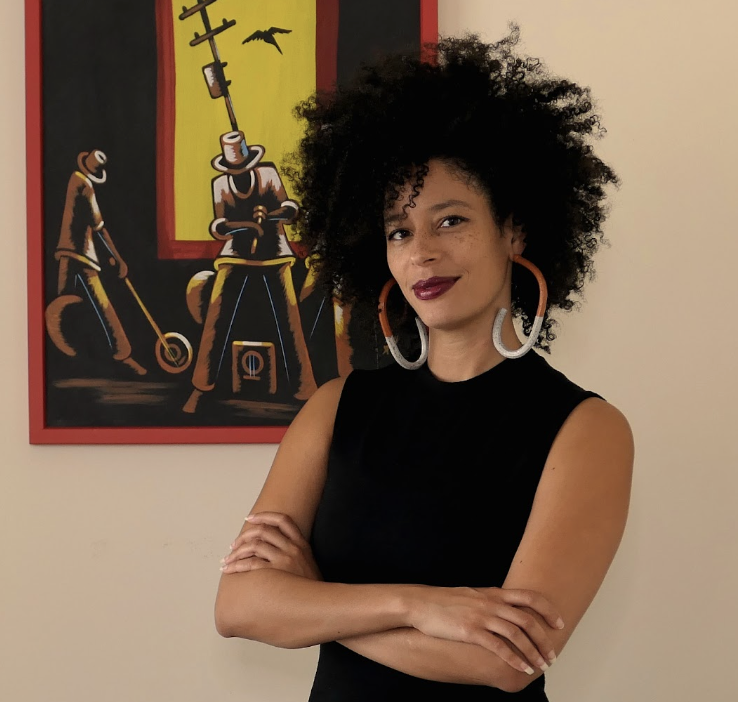“Undesirability and Her Sisters: Black Women’s Visual Work in the New Millennium”
People
Tiffany Barber
Dr. Tiffany E. Barber is a prize-winning, internationally recognized scholar, curator, and critic whose writing and expert commentary appears in top-tier academic journals, popular media outlets, and award-winning documentaries. Her work spans abstraction, dance, fashion, feminism, film, and the ethics of representation, focusing on artists of the Black diaspora working in the United States and the broader Atlantic world. She has completed fellowships at ArtTable, the Delaware Art Museum, the University of Virginia’s Carter G. Woodson Institute for African-American and African Studies, and the Getty Research Institute. Dr. Barber is the recipient of the Smithsonian’s 2022 National Portrait Gallery Director’s Essay Prize.
Photo caption: DESGUA project, Café Red Kat, photo taken by Floridalma Boj Lopez.



